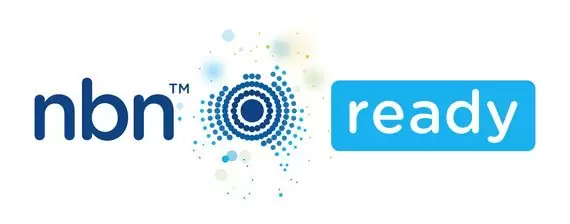Essential features to look for in a cloud phone system for a small business
With communication being a cornerstone of the business world, it should come as no surprise that 74% of businesses say that cloud phones are an investment priority. With 85% of businesses expecting to embrace cloud-led systems by 2025, the potential for more businesses to switch to these phone systems is high.
Just like large corporations, purchasing a cloud phone system for a small business is all about finding a better way of staying connected with stakeholders because it can be the difference between success and failure. From cost efficiency to flexibility and advanced features, many of these options were initially only available to large enterprises with big budgets to spend on sophisticated phone systems. This simply isn’t the case anymore and it’s just one of the reasons why cloud phones are becoming a more popular option.
But with the market being flooded with cloud-based phone systems with what can seem like an unlimited number of features, it can be overwhelming to select the right one with the right features for your small business.
Essential features to look for in a cloud phone system for a small business
If you’ve decided to invest in a cloud phone system for your business, you must have all the information to make the right decision because it’s a significant switch. You need to ensure that your decision aligns with your business needs and future plans.
Scalability and flexibility
As your business begins to scale, you need a phone system to keep up with your increased communication needs. Cloud phone systems give you incredible flexibility to add and remove users easily. This means that you can scale your business up or down without hassle.
Aside from adding and removing users, you can also modify the features as needed. Whether you need to hop on a conference call or need to get your voicemails sent directly to your email, you should be able to use the features you need without having to navigate complex systems that take up too much of your time.
Generally, if you were to add new features while using a traditional phone system, you would need expensive hardware upgrades, but cloud phones allow you to do this with in-built features that are regularly updated—minus the excessive costs or a complete overhaul of your phone system.
Advanced call management
Efficient call management leads to better customer service and employee productivity. One way to do this is by offering features like call queuing to manage high call volumes during peak hours. This can offer insights into estimated wait times, making it easier to improve customer satisfaction and control call abandonment rates.
Call forwarding is another popular feature where businesses don’t have to worry about missing important calls. Whether you’re expecting an important call from a prospective investor or looking to land a deal with a customer, call forwarding can help route calls to mobile phones, home offices, or any other number to ensure that you’re reachable no matter where you are.
Voicemail-to-email, as mentioned earlier, is an important feature that allows you to quickly scan and prioritise messages without going through every message. This can also lead to improved responsiveness and better time management.
Mobile integration
Today, everyone is living in a mobile-first world and the need to stay connected is becoming more important. Mobile apps, for instance, are now being used by businesses to make and receive calls on smartphones using their business phone numbers. Purchasing a cloud phone system for a small business helps you maintain a professional appearance even when working remotely.
The mobile capabilities offered by the cloud phone provider should have the same features as your office phone. This includes everything from voicemail management to call forwarding and even conference calling.
Collaboration tools
With 37% of Australians working from home at least once a week in 2023 as reported by the Australian Bureau of Statistics, employees should be able to stay connected from wherever they are working. Look for a system that offers top-quality video conferencing with features to host meetings with multiple individuals.
File-sharing capabilities are another way to streamline workflows and one way cloud phones do this is by offering integration options where everyone can access information in real time. Look for systems that can also offer quick messaging platforms that can reduce email clutter and improve team coordination without going through complex routes to achieve better communication.
Analytics and reporting
Data-driven decision-making is important for business growth and a reliable cloud phone system provides the necessary analytics and reporting capabilities to help optimise communication strategies.
Real-time analytics help businesses monitor call volumes and agent performance and even look into wait times. This is valuable information for businesses that want to improve their customer services, especially during peak times.
Detailed reports on historical data like call volumes and call durations can offer insights into call patterns that can help make informed decisions about training, staffing requirements, and resource allocation. Look for systems that offer customisable reporting options that give you the metrics that matter to you.
Choosing a cloud phone system for a small business—a critical decision for better communication
The best cloud system is the one that aligns perfectly with your specific needs. This is why businesses need to take the time to assess their needs and compare different providers and the features they offer for the price they quote.
As you begin the evaluation process, ask about the features that will contribute to your business objectives. Ask questions like, will it improve customer service? Will it have an impact on team productivity? Can it support your plans to grow?
By keeping these questions in mind you’ll have the information you need to make cloud phones a valuable asset to your small business.
FAQs
How secure is a cloud phone system for a small business?
Most reputable providers offer enterprise-grade security measures, including end-to-end encryption for calls and messages, secure data centres, and regular security updates. When choosing a cloud phone system for your small business, look for providers that comply with industry standards. It's also important to implement best practices within your business, such as using strong passwords and training employees on security protocols.
Is it possible to keep my existing phone numbers after switching to a cloud phone system?
Yes, most cloud phone system providers offer number porting, which allows you to transfer your existing phone numbers to the new system. This process ensures that your business can maintain continuity and avoid the hassle of changing phone numbers. When choosing a cloud phone system for your small business, confirm with the provider that they support number porting and inquire about any associated fees or timeframes for the porting process.
How reliable are cloud phone systems compared to traditional landlines?
Cloud phone systems can be just as reliable as traditional landlines, and in many cases, even more so. Unlike traditional systems that can be affected by local outages or physical damage to lines, cloud systems distribute their infrastructure across multiple data centres. This redundancy means that if one data centre experiences issues, others can take over seamlessly.



